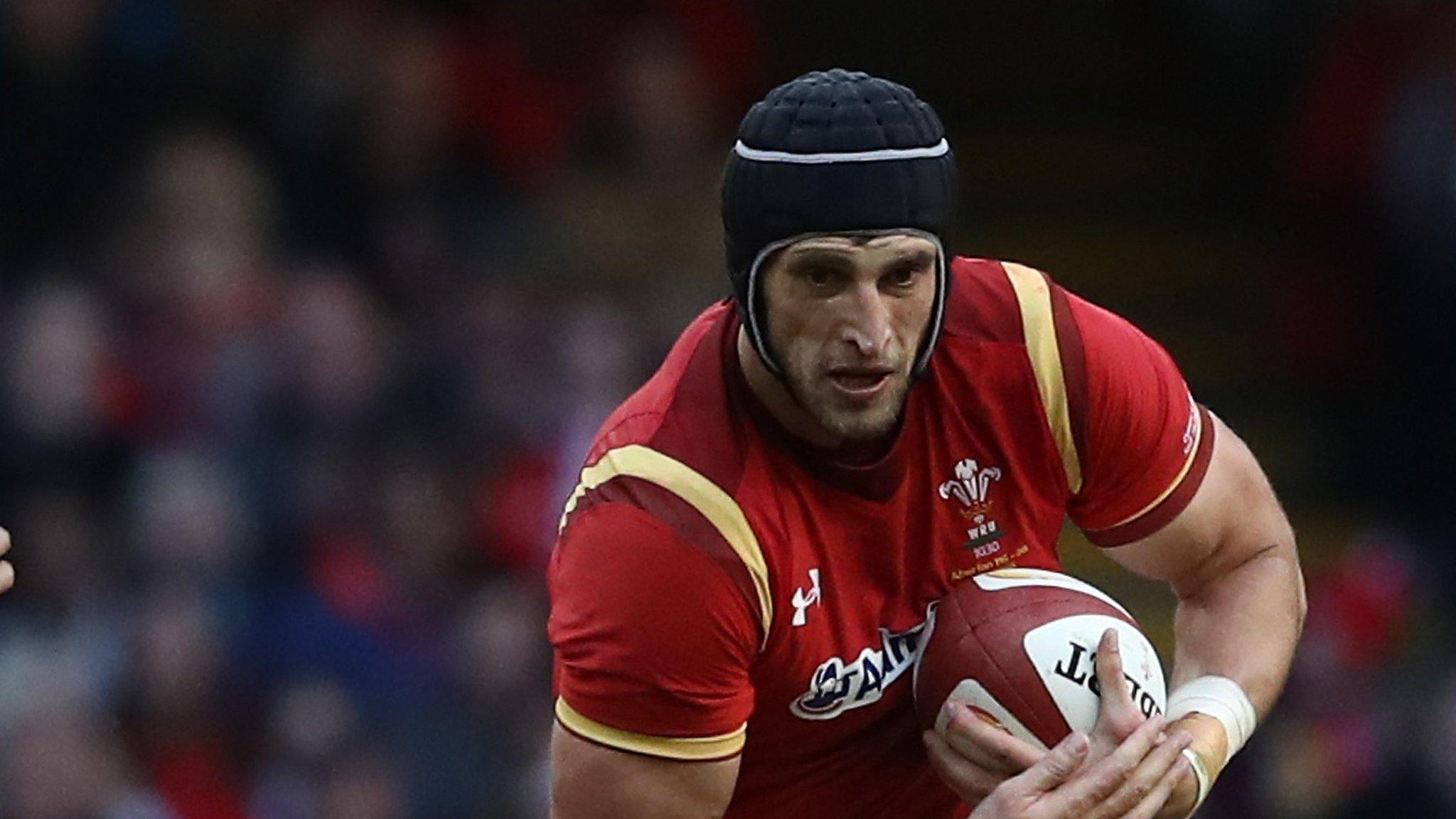Peter Jackson's Six Nations stories: Irish eyes not always smiling in Cardiff
- Published
Peter Jackson 6N stories Ireland
Six Nations: Wales v Ireland |
|---|
Venue: Principality Stadium, Cardiff Date: Friday, 10 March Kick-off: 20:05 GMT |
Coverage: Live on BBC 1, S4C, Radio 5 live, BBC Radio Wales and BBC Radio Cymru, plus live text commentary via the BBC Sport website and BBC Sport app |
Of all the modern sporting shrines the world over, Cardiff's monumental stadium beside the inky waters of the River Taff takes a lot of beating.
The Welsh are rightly proud of the stadium which has the cream of European club football battling to reach the Champions' League final there in June this year.
But Ireland's rugby players have little reason to fear Friday night's Six Nations match with Wales at the Principality Stadium - as a rugby nation they have the happy habit of winning there.
Irish teams have won three European Cup Finals and one Six Nations Grand Slam at the venue - all in the space of five years.
They've won the big prizes in green of Ireland, red of Munster and blue of Leinster and the Irish fans will will be back in Cardiff at the end of the week by the thousand and ready to party.
Wales haven't exactly been standing back in admiration of the Irish handiwork - on the contrary.
They beat Ireland to claim the first of the three Welsh Grand Slams of the 21st century, on St Patrick's Day weekend twelve years ago.
And thereby hangs a tale or two.
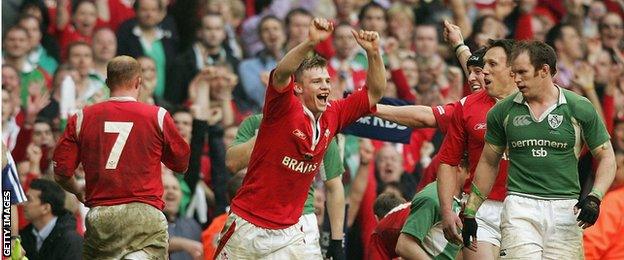
Wales celebrate clinching the Grand Slam
Wales won 32-20, external and what made the occasion all the more memorable was the first Welsh try.
A collector's item if ever there was one because it featured a prop charging down a clearance from a fly-half - not any old fly-half, but one of the all-time greats.
Ronan O'Gara was the number ten and Gethin Jenkins the man who brought him to grief. Rarely can a prop have demonstrated such a nifty bit of footballing skills as Jenkins did that afternoon.
As O'Gara will tell you: a charge-down is an occupational hazard for fly-halves the world over but you never expect it to happen against a loose-head prop.
But Munsterman O'Gara would learn to love the arena - in those days known as the Millennium Stadium - as a home from home.
The following year he was back with Munster, helping them win the European Cup for the first time against Biarritz.
Two years later he and the red army, some 40,000 strong, won a second European title again at the expense of French opposition, this time Toulouse.
And when the Ireland national team came back in 2009 it was to win the ultimate prize in European international rugby, and one that had eluded them since 1948 - the Grand Slam.
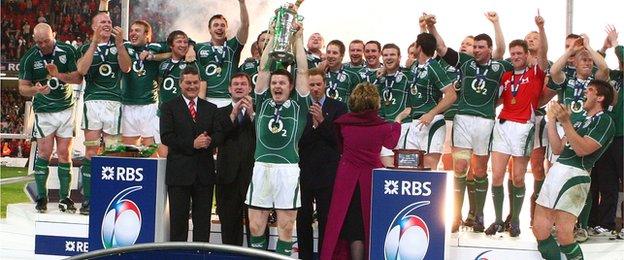
Ireland celebrate their 2009 Grand Slam in Cardiff
Wales, in with a faint sniff of retaining their Six Nations title, led until O'Gara intervened with two minutes to go.
And even then Wales still had one last chance, a sniper's shot at ambushing the Irish slam.
Stephen Jones took aim from just inside his own half and when the ball came down in front of the crossbar those of us who wondered why Wales hadn't given the kick to Gavin Henson, the long-distance specialist, wondered all the more.
Instead all Ireland had to do was catch the ball and belt it into the crowd, Geordan Murphy duly obliged and, at long last, the slam was theirs.
Not everything though has gone swimmingly for the boys in green since then. They lost here six years ago to a try from Mike Phillips which ought not to have been allowed.
Six Nations Wales v Ireland classics: Mike Phillips 2011
The laws state that a quick throw can only be taken when using the same ball that has been kicked out.
Wales used a different ball and the subsequent confusion between the Scottish touch judge and the South African referee left Ireland's two five-star generals, Brian O'Driscoll and Paul O'Connell, apoplectic with rage.
They had good reason because the seven points it cost them made all the difference.
As for this time, expect to see the fur flying all over the place as per usual.
They may be Celts but there's been no love lost between these two and no reason to believe that peace is about to break out any time soon.
- Published6 March 2017
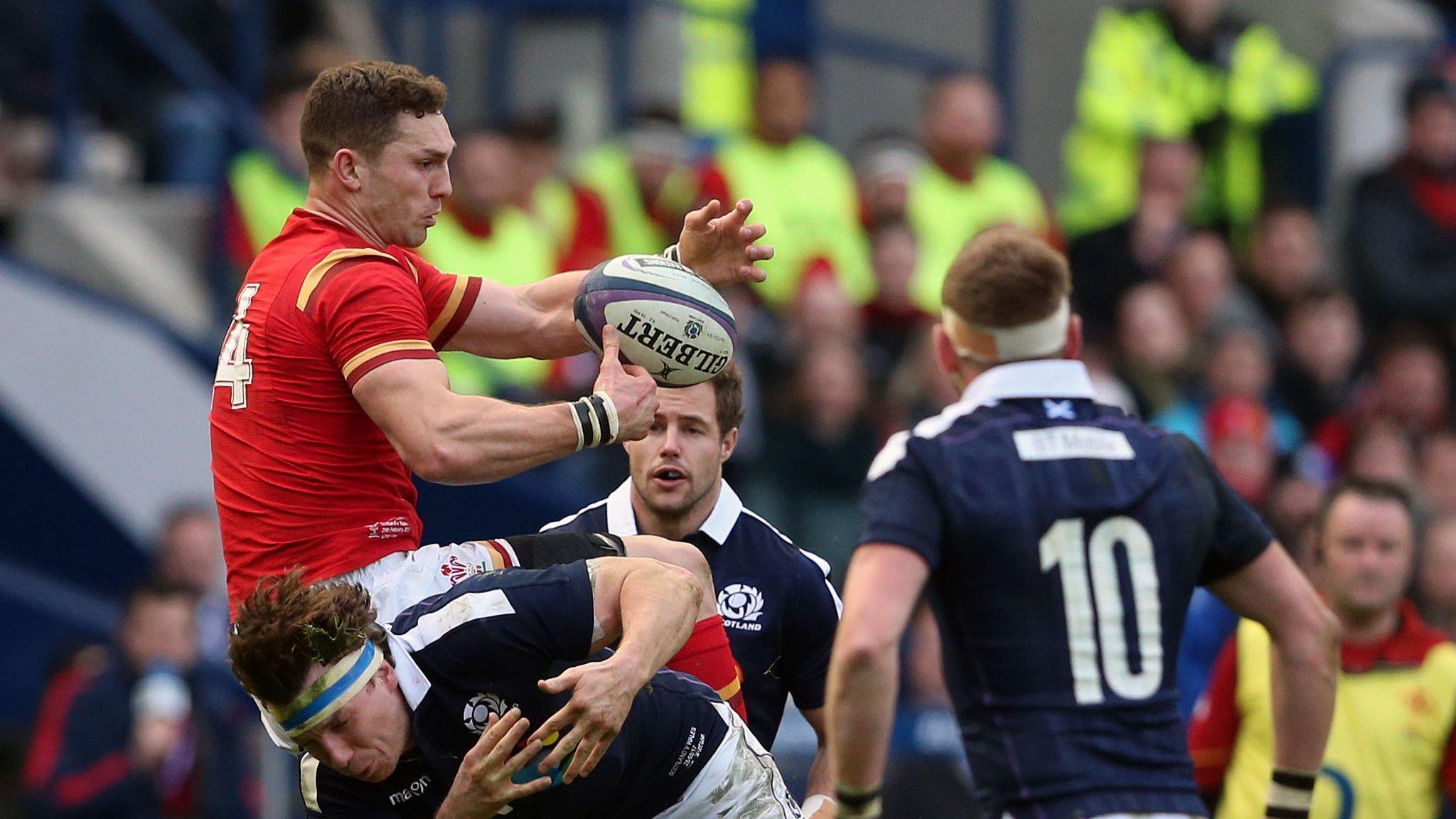
- Published6 March 2017
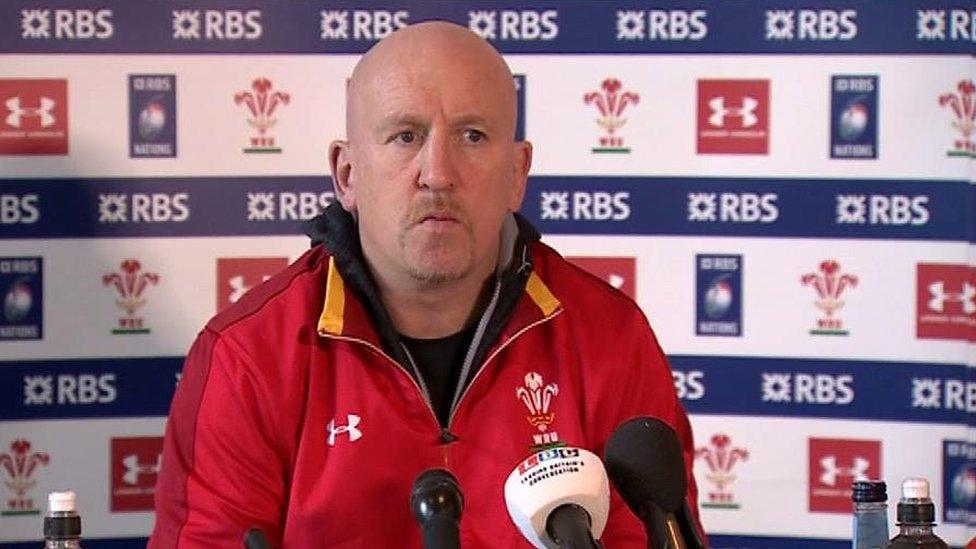
- Published6 March 2017
